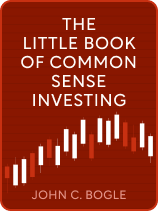

This article is an excerpt from the Shortform book guide to "The Little Book of Common Sense Investing" by John C. Bogle. Shortform has the world's best summaries and analyses of books you should be reading.
Like this article? Sign up for a free trial here.
How do mutual funds work? Why do mutual funds underperform index funds?
Mutual funds generate profits for their investors by beating the market-average returns. According to John Bogle, the author of The Little Book of Common Sense Investing, doing so is a zero-sum game: For every investor whose returns are above-average, there must be another whose returns are below-average.
Keep reading to learn about the disadvantages of mutual funds.
The Problem With Mutual Funds: Everyone Can’t Win
Actively managed mutual funds generate profits by trying to beat the market-average returns. So, by definition, everyone can’t win: It’s mathematically impossible for everyone to enjoy above-average returns.
Another disadvantage of mutual funds is that they have much higher costs than index funds. So, after deducting the costs of investing, this zero-sum game becomes a loser’s game: Because the average investor’s gross returns (their returns before deducting investment costs) match the market average, the additional costs of investing cause investors’ net returns (their actual returns minus investment costs) to fall below market average. So, funds with the highest investing costs typically fall furthest below the market average.
(Shortform note: Although mutual fund performance looks grim when it comes to net returns, some researchers argue that top mutual fund managers fare better when examining gross returns. In particular, simulations suggest that some managers’ gross returns outperform the market to a degree not attributable to luck. However, these simulations similarly find that other active managers underperform the market to a statistically significant degree. Thus, although truly skilled managers may exist, they’re offset by incompetent ones.)
Because they attempt to outperform the market, mutual fund managers can’t follow the same strategy as index funds, which attempt to generate market-average returns. For one, mutual fund portfolios contain far fewer stocks than index funds. Additionally, because mutual fund managers are constantly purchasing and selling stocks, Bogle observes that mutual funds have much greater portfolio turnover than index funds.
| The Efficient Market Hypothesis: Are Mutual Funds Guaranteed to Fail? According to some experts, the stock market is completely efficient—in other words, the current stock market prices perfectly reflect all available information. Because information about companies is instantly represented via the purchases and sales of stocks, proponents of the efficient market hypothesis argue that stocks are always fairly priced. Consequently, they conclude that it’s impossible for investors to find stocks that are overvalued or undervalued; rather, all stock prices precisely reflect fair values. If the efficient market hypothesis is true, then no amount of research by active mutual fund managers will yield novel insights into which stocks to purchase or sell. After all, the efficient market hypothesis holds that such insights are already baked into stocks’ prices. Indeed, proponents suggest that this hypothesis explains why most mutual funds don’t deliver above-market returns long-term. However, the success of some active managers—like Magellan’s Peter Lynch, who far outstripped the S&P 500 with 29% annual returns between 1977 and 1990—cast doubt on this hypothesis. Indeed, if the efficient market were true, then Lynch’s success is attributable to luck alone. |

———End of Preview———
Like what you just read? Read the rest of the world's best book summary and analysis of John C. Bogle's "The Little Book of Common Sense Investing" at Shortform.
Here's what you'll find in our full The Little Book of Common Sense Investing summary:
- A simple winning strategy for novice investors
- Why index funds are superior to mutual funds
- Why bonds belong in your investment portfolio






